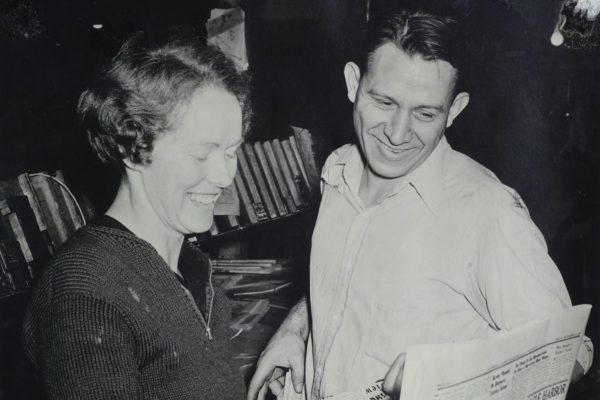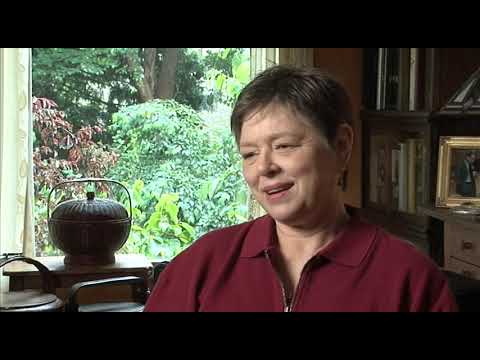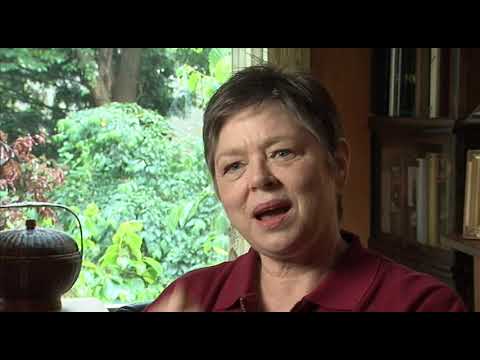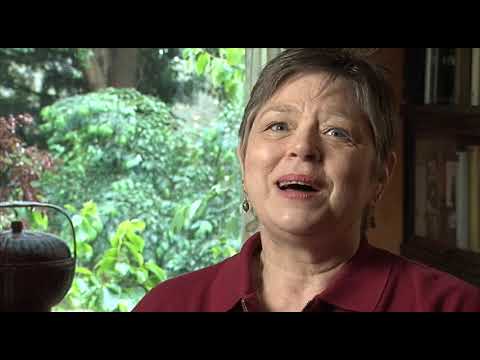Video Interview — August, 2007
BI School District support of their Japanese American students – Mary Woodward (OH0089)
Transcript
The school district on Bainbridge Island was so supportive of the students, of their students. In December, after Pearl Harbor, the principal at the high school called in individual students. I remember Sa Koura saying that she had had a conversation and Mr. Dennis had said how he was going to miss her and hoped things went well, and was there anything that he could do. So they met individually with students. They also, they had an assembly the day after. December 8, they had an assembly with several of the teachers basically saying what the Review had said. These are our neighbors. Let’s not get carried away here. Let’s remember who we are.
There are two distinct things that Bainbridge High School, and the Bainbridge School District ‘ actually three — that they didn’t have to do, and I’m not aware of other schools doing this kind of thing. There was baseball game about … Well, island Japanese on the 24th of March, were given notice that by the 30th, they had to leave. So somewhere in that… maybe it was the 26th of August… anyway, it was obviously the last game that the Nisei members of the team were gonna to be playing. Walter Miller, Pop Miller — who I knew later and just loved. He was a delightful man, great sense of humor — He was the coach.
Earl Hanson, one of his, one of his players — oh, he did not like to lose, he was very competitive. — Well this was I think the season opener. They were playing North Kitsap, which was a traditional rival, and he put in all of the Japanese players and they stayed in the entire game. They lost like fifteen to nothing. I mean it was just… I mean they were shellacked. The team really wanted to win and they were there cheering those guys on. Those guys played through the whole game. I’ve talked to a couple of those players who said they will never forget Coach Miller for doing that. Sending them away, oh, this gets me… Sending them away with a happy memory. You know, they were Spartans, and they were going away. Lot of the boys wore their Spartan sweaters that day that they had to leave.
Another thing that the high school did… there were thirteen students who would have graduated with the class. That’s gotta be a quarter of the class, I think, I don’t know. Yeah, it’s gotta be a quarter of the class. These were student leaders, some of them, the stars on the basketball teams. Some of them were student government leaders. They were… and many very accomplished students too, but they just were part of the whole fabric of Bainbridge High School.
Here was a whole portion of the high school that was leaving. They made arrangements for the superintendent and for Mr. Dennis the principal, to send down to Manzanar, copies of the speeches that they were giving at graduation. They sent down the diplomas to be presented. They made sure that the students had completed whatever work they needed to do, and probably excused a lot of the work so that they could graduate. So at Manzanar they had their Bainbridge High School graduation. At the graduation here on the island, there were thirteen empty chairs on the dais. Isn’t that something? That’s another thing that gets me teary.





